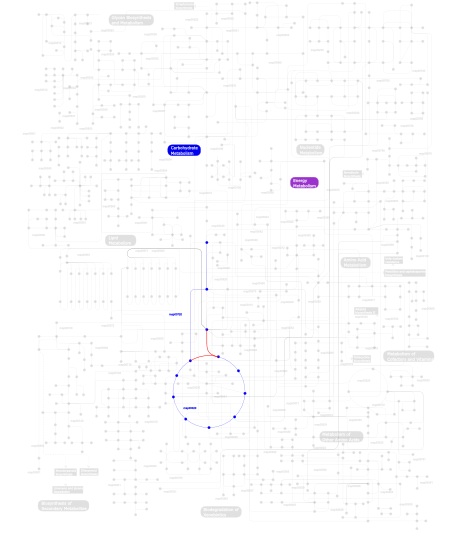The domain within your query sequence starts at position 494 and ends at position 544; the E-value for the Kelch domain shown below is 7.59e-2.
KLFVIGGSNNDAGYRRDVHQVACYSCTSRQWSSVCPLPAGHGEPGIAVLDS
Kelch |
|---|
| SMART accession number: | SM00612 |
|---|---|
| Description: | - |
| Interpro abstract (IPR006652): | Kelch is a 50-residue motif, named after the Drosophila mutant in which it was first identified [ (PUBMED:8453663) ]. This sequence motif represents one beta-sheet blade, and several of these repeats can associate to form a beta-propeller. For instance, the motif appears 6 times in Drosophila egg-chamber regulatory protein (also known as ring canal kelch protein), creating a 6-bladed beta-propeller. The motif is also found in mouse protein MIPP [ (PUBMED:8453663) ] and in a number of poxviruses. In addition, kelch repeats have been recognised in alpha- and beta-scruin [ (PUBMED:7593276) (PUBMED:7822422) ], and in galactose oxidase from the fungus Dactylium dendroides [ (PUBMED:8126718) (PUBMED:2002850) ]. The structure of galactose oxidase reveals that the repeated sequence corresponds to a 4-stranded anti-parallel beta-sheet motif that forms the repeat unit in a super-barrel structural fold [ (PUBMED:8182749) ]. The known functions of kelch-containing proteins are diverse: scruin is an actin cross-linking protein; galactose oxidase catalyses the oxidation of the hydroxyl group at the C6 position in D-galactose; and kelch may have a cytoskeletal function, as it is localised to the actin-rich ring canals that connect the 15 nurse cells to the developing oocyte in Drosophila [ (PUBMED:7593276) ]. Nevertheless, based on the location of the kelch pattern in the catalytic unit in galactose oxidase, functionally important residues have been predicted in glyoxal oxidase [ (PUBMED:8126718) ]. This entry represents a type of kelch sequence motif that comprises one beta-sheet blade. |
| GO function: | protein binding (GO:0005515) |
| Family alignment: |
There are 151337 Kelch domains in 35376 proteins in SMART's nrdb database.
Click on the following links for more information.
- Evolution (species in which this domain is found)
- Metabolism (metabolic pathways involving proteins which contain this domain)
- Structure (3D structures containing this domain)
- Links (links to other resources describing this domain)
































































